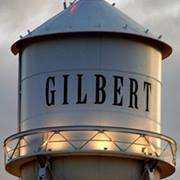By Recker McDowell —
Scottsdale and Gilbert rank among the top cities in the U.S. for remote workers.
Scottsdale ranks 2nd and Gilbert ranks 3rd among mid-size U.S. cities for the percentage of workers doing their jobs remotely, according to software firm Volusion. Only Frisco, Texas (a suburb of Dallas) ranks higher for remote jobs.
The high rankings show the economic strength and continued potential for both Scottsdale and Gilbert. The two cities have desirable demographics, appealing lifestyle amenities such as restaurants, shopping and arts events and strong performing schools.
The growth in remote workers in each shows both Gilbert and Scottsdale are ahead of the curve as the economy and workplaces see more jobs being done remotely or in less traditional and flexible offices such as co-working spaces. Employers and workers are increasingly looking for flexibility, work-life balance and forward-thinking communities with forward-thinking economies.
Therein also sits the challenge.
Workplaces, jobs and office spaces are all changing. Cookie-cutter and traditional office buildings and business parks are being replaced by more mixed-use and less conventional spaces.
Employers and employees want to work not only in cool and creative offices. They also like to be close to cool and creative restaurants and bars and other amenities whether those are shops, arts and cultural venues or just places to hang out during lunch or after work.
Downtown Scottsdale has that more than any other city in the state with its Old Town area, Scottsdale Fashion Square and the Scottsdale Waterfront. The area has cool events not only for tourists and residents but also for employees who work in the downtown area.
Gilbert certainly has made progress evolving from its farming and bedroom community past with its Heritage Square restaurant row. Gilbert is looking to bring in more offices and other uses to complement its bar and restaurant zone.
Cities and developers need to realize they need to be creative, innovative and open minded when it comes to how they grow, and in some cases redevelop their downtowns and employment zones.
Traditional approaches to real estate development, land-use and zoning might not mesh with changes in workplace, jobs and the economy. That will require more live-work type projects and cohesion between restaurants, coffee shops and happy hour spots and where jobs are whether they be remote jobs or in office space.
 Communities that keep up with the times and changes in how and where we work including home offices, co-working spaces or the local Starbucks or Panera will stay competitive. The cities that don’t run the risk of getting left behind.
Communities that keep up with the times and changes in how and where we work including home offices, co-working spaces or the local Starbucks or Panera will stay competitive. The cities that don’t run the risk of getting left behind.

